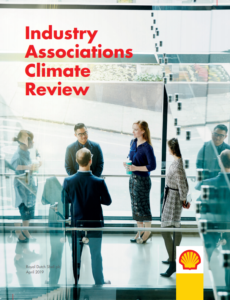Shell, on April 2, became the first major oil and gas company to leave the American Fuel & Petrochemical Manufacturers (AFPM). The company said that it made this decision because of disagreement on climate policies, reiterating its support for the Paris Agreement.
In its first review of its association with 19 key industry groups, Shell reported ‘material misalignment’ regarding climate policy with the American Fuel & Petrochemical Manufacturers (AFPM). For this reason, it will leave the body in 2020.
[smlsubform prepend=”GET THE SAFETY4SEA IN YOUR INBOX!” showname=false emailtxt=”” emailholder=”Enter your email address” showsubmit=true submittxt=”Submit” jsthanks=false thankyou=”Thank you for subscribing to our mailing list”]
The review is part of Shell’s attempts drive to increase transparency and show investors it complies with the 2015 Paris climate agreement’s goals to reduce global warming by limitng carbon emissions to a net zero by the end of the century.
In addition, last year Shell established plans to introduce carbon emissions targets linked to executive pay. What is more, Ben van Beurden, Shell’s chief executive, has repeatedly called oil and gas producers to take measures to address climate and pollution, by adopting a more radical position, Reuters reported.
Shell disagreed with AFPM on various issues for quite some time, while it has also disagreed with AFPM’s opposition to a price on carbon and action on low-carbon technologies. In addition, the two parties have different opinion regarding regulation over the use of renewable fuels. Shell, as well as other large refiners have invested in cleaner fuel technology, but AFPM has fought hard against standards mandating refiners to blend or subsidize the blending of biofuels into the gasoline pool.
Commenting on this development, AFPM Chief Executive Chet Thompson thanked Shell for its ‘longstanding collaboration’, and stated that AFPM will continue to work on behalf of the refining and petrochemical industries, while also being responsible towards the environment.
Except AFPM, Shell also found disagreements with nine other trade associations, including the American Petroleum Institute. According to the company, it had some differences with APi regarding climate, but it welcomed the lobby’s advocacy on a range of state and federal issues like trade and transport, along with its efforts to cut methane emissions. Shell will continue to collaborate with the API and other groups about climate policies and monitor their alignment.
Finally, the oil and gas major urged President Donald Trump last month to make restrictions on emissions of methane stricter, as methane is a potent greenhouse gas.
See more information in the PDF herebelow



































































